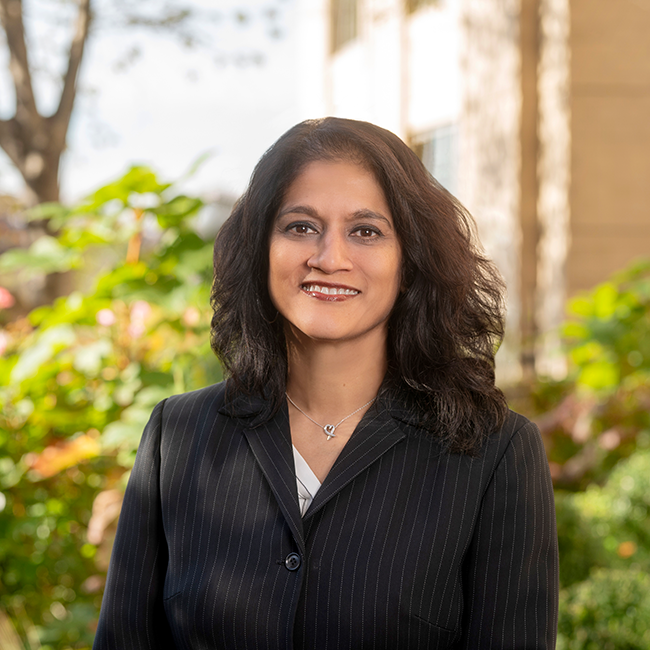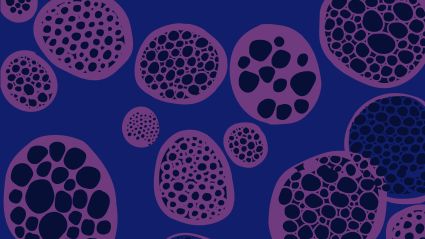
The Ann Theodore Foundation (ATF) and the Milken Institute Science Philanthropy Accelerator for Research and Collaboration (SPARC) are excited to announce five new research teams selected to receive funding from the Ann Theodore Foundation Breakthrough Sarcoidosis Initiative grant program.
These five grants, totaling $2.4 million, will help advance the sarcoidosis research landscape while simultaneously fostering collaboration within the sarcoidosis research community. Research studies will run for two years, with an opportunity to extend for a third year. The next grant cycle is now open and is accepting applications until January 20, 2025. More information about this opportunity can be found on the sarcoidosis program page.
To date, ATF has awarded $8.2 million to teams using a range of research techniques to investigate the underlying biology of sarcoidosis. These projects span a variety of topics, including granuloma formation, neurosarcoidosis development, and the development of early detection tools.
Cell-Free DNA to Define Organ Involvement and Severity in Sarcoidosis
Sean Agbor-Enoh, MD, PhD, National Heart, Lung, and Blood Institute
Co-Investigators:
Mary Richert, MD, National Heart, Lung, and Blood Institute
Steve Holland, MD, National Institute of Allergy and Infectious Diseases
Wonder Drake, MD, University of Maryland, Baltimore
Edward Chen, MD, Johns Hopkins University
Shambhu Arya, MD, Inova Fairfax
This project intends to test the utility of cell-free DNA to diagnose, identify organ involvement, assess disease severity, and monitor treatment responses and progression in sarcoidosis. The team will also form a research working group to monitor outcomes from this study and plan future studies with the recruited patient cohort.
Objective Cognitive and Neuroimaging Assessment in Sarcoidosis
Nabeel Hamzeh, MD, Professor of Medicine in the Division of Pulmonary, Critical Care and Occupational Medicine, University of Iowa
Co-Investigator:
Karin Hoth, PhD, University of Iowa
This project seeks to be the first to use neuroimaging approaches and assessments of disease burden to interrogate changes in brain activity and structure within patients with systemic sarcoidosis but without neurosarcoidosis. The team hypothesizes that systemic inflammation can lead to changes in brain metabolism, manifesting as impaired cognitive function. This project could offer insights on how sarcoidosis affects cognition.
Elucidating the Immune Landscape of Neurosarcoidosis
Michael Levy, MD, PhD, Associate Professor of Neurology, Mass General Brigham
Co-Investigator:
Shamik Bhattacharrya MD, Brigham and Women’s Hospital
This project seeks to understand the pathogenesis of neurosarcoidosis—sarcoidosis of the brain—by studying exosomes, which are small biological containers that transport proteins and other molecules. To begin profiling exosomes, Dr. Levy’s team will obtain cerebrospinal fluid from neurosarcoidosis patients and controls and study the differences in protein and gene expression within exosomes between the groups. Neurosarcoidosis is especially challenging, but this study could help find biomarkers and pharmacological targets.
Role of Mincle and other C-type lectins in granuloma formation in sarcoidosis and development of new therapeutics (COMBAT SARC)
Antje Prasse , MD, Professor and Division Chief of Respiratory Medicine, University Hospital Basel
Co-Investigator:
Theresa Graalmann, MD, PhD, Twincore
This project intends to study the role of the C-type lectin receptor (CLR) in granuloma formation, a key feature of sarcoidosis pathogenesis. The research team aims to investigate how a specific CLR, Mincle, affects granuloma formation. They also plan to use novel nanotechnologies as a tool to specifically target CLRs involved in granuloma formation. These nanotechnologies might be a tool that could deliver therapeutics to the problematic cells in patients with sarcoidosis.
Abnormal Lysosomes in Pulmonary Sarcoidosis Pathogenesis
Wei Shi, MD, PhD, Professor, Division of Pulmonary, Critical Care and Sleep Medicine, University of Cincinnati
Co-Investigator:
Nishant Gupta, MD, University of Cincinnati
This project will investigate the role of lysosomes, which play a central role in a cell’s ability to break down waste, in sarcoidosis. This team aims to determine how lysosomal dysregulation contributes to sarcoidosis in patients and whether an existing drug can alleviate sarcoidosis-like symptoms in mice. These studies will help investigators assess the potential of lysosomal activity to serve as a prognostic biomarker and could potentially identify a drug that could be repurposed for sarcoidosis treatment while enabling an increased understanding of sarcoidosis biology.









